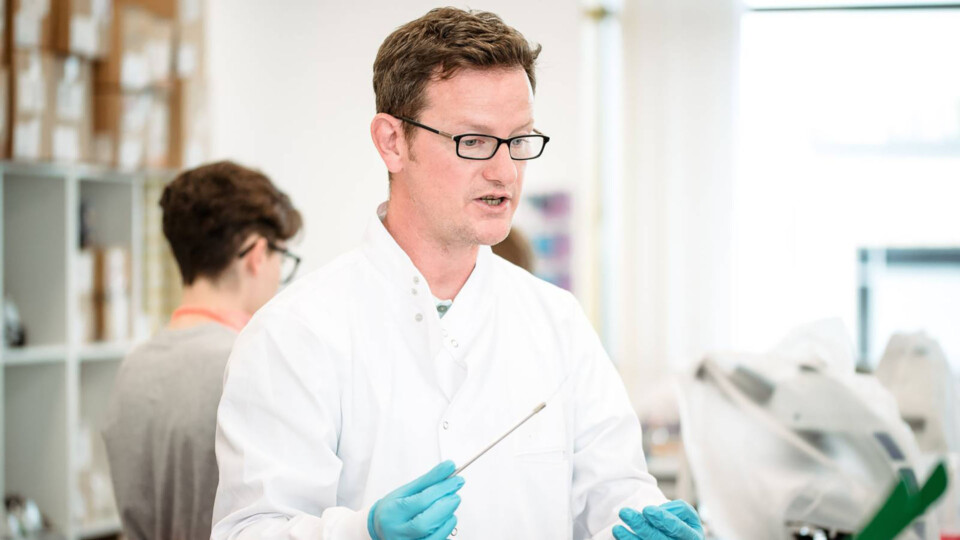York scientist wins international award for his work to tackle unnecessary animal testing
Dr Owen Kavanagh from York St John University founding member of group honored by the Lush Prize 2024
“We believe it’s time to put an end to the bias in favour of animal-based methods in research as often non-animal methods are more suitable and ethical.”
Dr Owen Kavanagh, Senior Lecturer in Biomedical Science at York St John University is a founding member of the group ‘The Coalition to Illuminate and Address Animal Methods Bias (COLAAB).’ This is an international group of scientists, advocates and regulators who are working to reduce animal testing in research.
Dr Kavanagh and the team have this week been awarded the prestigious Lush Prize 2024 Major Science Collaboration Award in recognition of their efforts. The Lush Prize is the largest prize fund in the nonanimal testing sector and supports initiatives to end or replace animal testing. It is a joint project between Lush Cosmetics and the Ethical Consumer Research Association (ECRA).
When a new drug is discovered, animal tests are used to predict how effective and safe it might be in humans. But animals are poor predictors of patient success with failure rates of drugs reportedly as high as 90%!. In the past decade, nonanimal method technologies have emerged as a superior alternative to animal testing. Despite biomedical researchers viewing animals as the “gold standard” the recent decision in the US to remove the legal requirement for animal testing of potential new medicines shows nonanimal methods are gaining attention.
One of the principal barriers to uptake of non-animal methods is a phenomenon COLAAB have defined as Animal Methods Bias where “academic journals request animal-based data as a prerequisite for publication despite approved nonanimal method alternatives being available”
The COLAAB have joined forces to address this bias by holding regular online workshops and have produced an Author Guide to help mitigate this type of bias.
Dr Owen Kavanagh, Senior Lecturer in Biomedical Science said: “Researchers worldwide are increasingly recognising the potential of nonanimal methods to replace animal testing. This collaboration signifies our collective dedication to promoting responsible research practices and fostering a culture of compassion within the scientific community.
“We believe it’s time to put an end to the bias in favour of animal-based methods in research as often non-animal methods are more suitable and ethical. This results in unnecessary barriers in non-animal method researchers’ careers and sadly delays the release of new medicines that could already be helping public health.”
Dr Catharine Krebs, medical research program manager at the Physicians Committee and lead coordinator of the COLAAB collected the Lush Prize at a ceremony in London. She said: “I’m so proud of this amazing team for taking the idea that nonanimal research doesn’t always get a fair shake and growing it into a globally recognized phenomenon.
“We’re a growing organisation aiming for a global impact and it’s so helpful to connect with like-minded scientists around the world. Dr Kavanagh has been a key member of the COLAAB’s mitigation working group since its inception, helping to push the work forward and connect with more people who want to see animal welfare and scientific advancement go hand in hand.”

